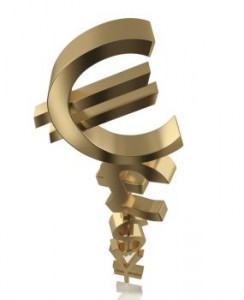Euro debt chaos a crisis of democracy
- By Miguel Poiares Maduro
 0 Comment(s)
0 Comment(s) Print
Print E-mail
China Daily, August 16, 2011
E-mail
China Daily, August 16, 2011

In the end, as always, Europe acted. But will it be enough? Financial markets, no doubt, will be skeptical about the eurozone member states' solemn commitment that the de facto Greek default will remain the exception. Verbal assurances have been the European Union's preferred currency in tackling the euro crisis, but words now have as little value as Greece's sovereign debt.
It took more than a year for Europe to do what everyone knew needed to be done to contain the Greek crisis, and it still may not be enough, for the approved measures do not provide the transparent and long-term commitment to restoring Greek finances that markets want to see.
That is the nature of European politics. The EU acts only when it is pressed to the wall. And, when it finally does do the right thing, it pretends not to be doing it. The reason is that EU politics is mostly national politics, which addresses national issues with a European dimension, but not European issues. The EU's deep interdependence is lost in national politics, opening a gap between the scope and level of policies where politics takes place. Europe's democratic deficit is less of a gap between European institutions and European citizens than between national politics and European problems.
Consider the very different narratives that have emerged in Europe and the United States about the financial crisis. Both in the US and the EU, some spent more than they could afford, and others granted credit that they ought not to have granted. But Americans blame irresponsible banks, while Europeans blame irresponsible southern countries like Greece.
The reason for this disparity is the scope and level of the politics under which the narratives are framed. In the US, the problem is seen as a national problem regarding the actions of banks and individuals, while in Europe the problem is seen as one arising within some states and affecting other states.
Quite simply, EU politics has not kept pace with the scope and level of the EU's problems. This is what those who lament the EU's democratic deficit mean. No EU member state has yet fully internalized the consequences of its financial integration and the union's democratic interdependence.
A few eurozone member states' financial troubles have become a problem for all. An immigration influx into Italy spills over to other EU countries. A wrong assessment by German authorities of the health risk posed by some vegetables leads to massive financial losses for farmers across Europe.
In all of these instances, national policies have had severe repercussions for other EU states. European issues were governed at national levels, and other Europeans paid the price. At the same time, because the EU is both a source of wealth creation through market integration, and redistributive effects among states through competition in that market, the increasingly "majoritarian" character of its decisions requires some democratic notion of distributive fairness. To the extent that European issues can't still be fully governed by European politics, and national politics need to be made more European.
A credible solution to the eurozone's crisis depends on addressing this democratic deficit, but the crisis also provides an opportunity to do so. Reform of the eurozone's governance must use democratic mechanisms - and the logic of the internal market - to prevent some EU states from imposing externalities on others.
But the democratic argument must also be applied to the other side of the issue: adjustment programs. Once the EU binds its aid to some states to their adoption of certain policies, it should be equally accountable for the outcome of those policies. The EU can simultaneously address the markets' fears by making clear that it guarantees full implementation of those policies - for example, by making the ability to issue eurobonds conditional upon it.
The EU must be made accountable not only for what it spends, but also for the wealth that it generates. It must distribute "its" money and not that of its members. The democratic argument requires a clear connection between the EU's financial resources and the wealth that it generates, or with member states' economic activities that have important externalities for other members.
The European Commission's recent proposals for its own revenue sources are a step in the right direction. Any new value-added tax resource should be linked to cross-border transactions, establishing a clear link with the internal market. Other revenue sources could be linked to national activities with substantial cross-border externalities.
If the EU makes the way it raises money more democratic, deciding how to spend that money would become more democratic, too. This is crucial to ensuring the legitimacy of the eurozone's economic governance.
The author is professor of European Law and director of the Global Governance Program at the European University Institute.
Project Syndicate





